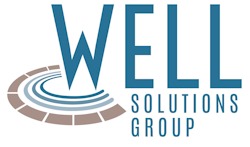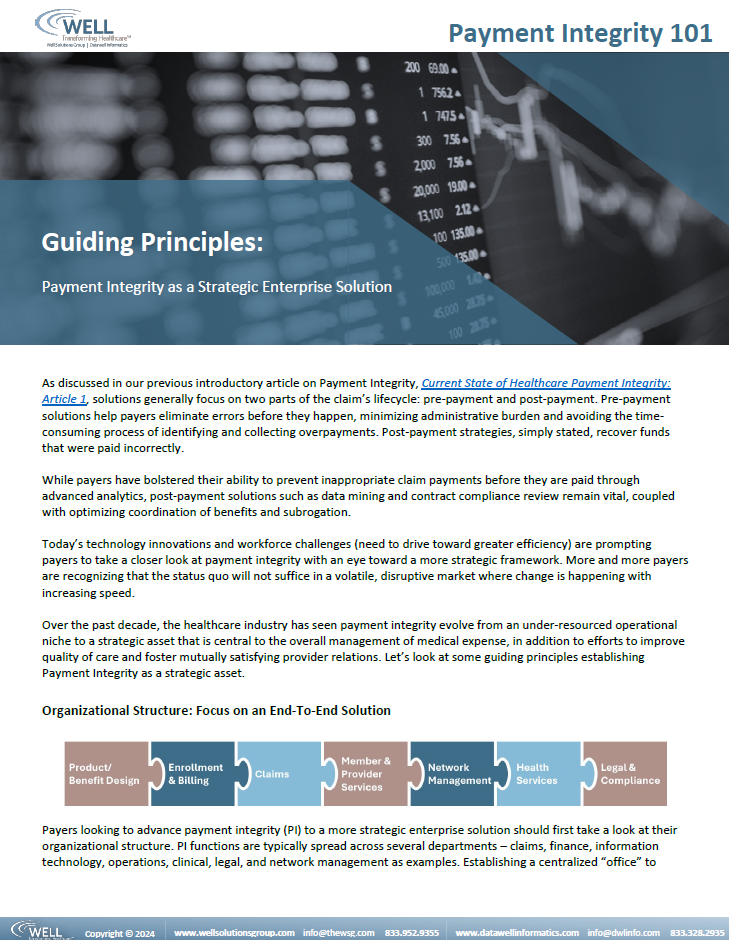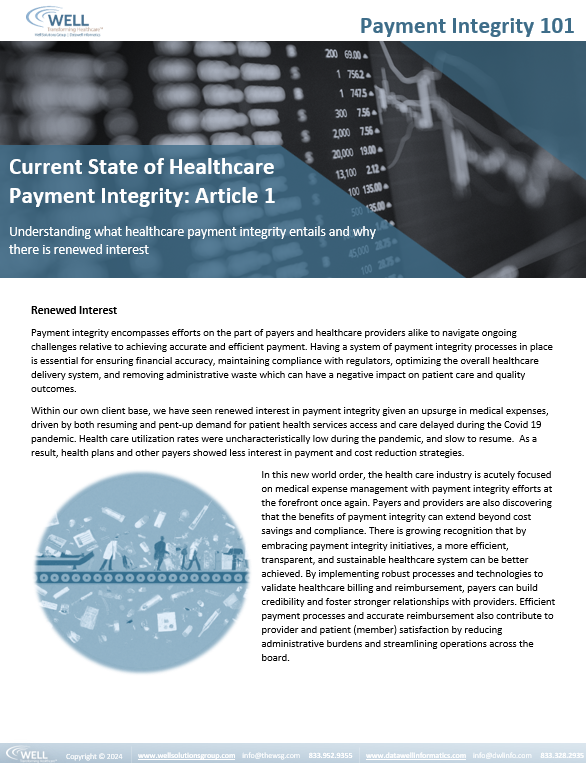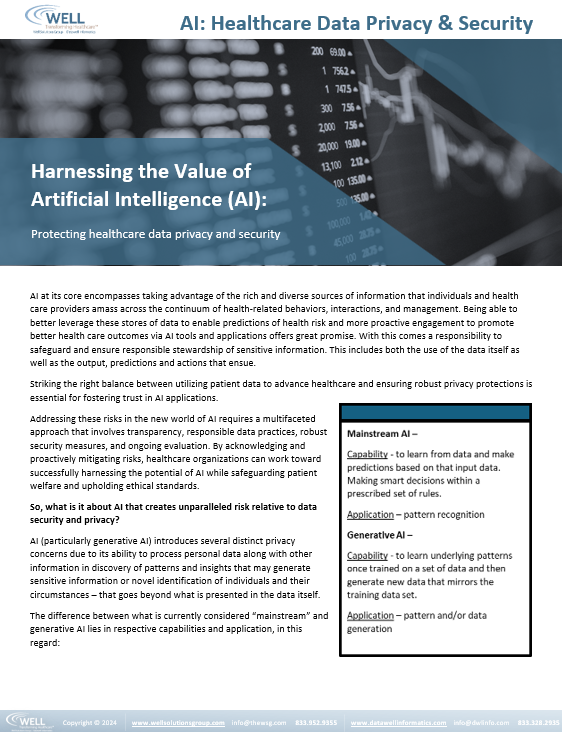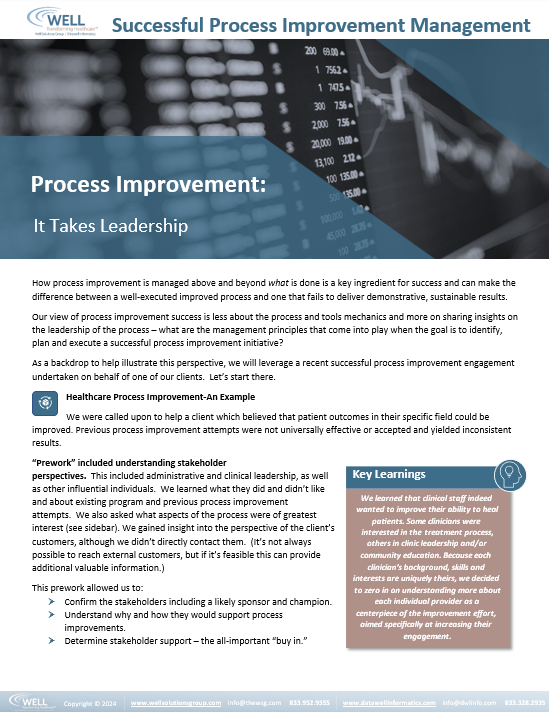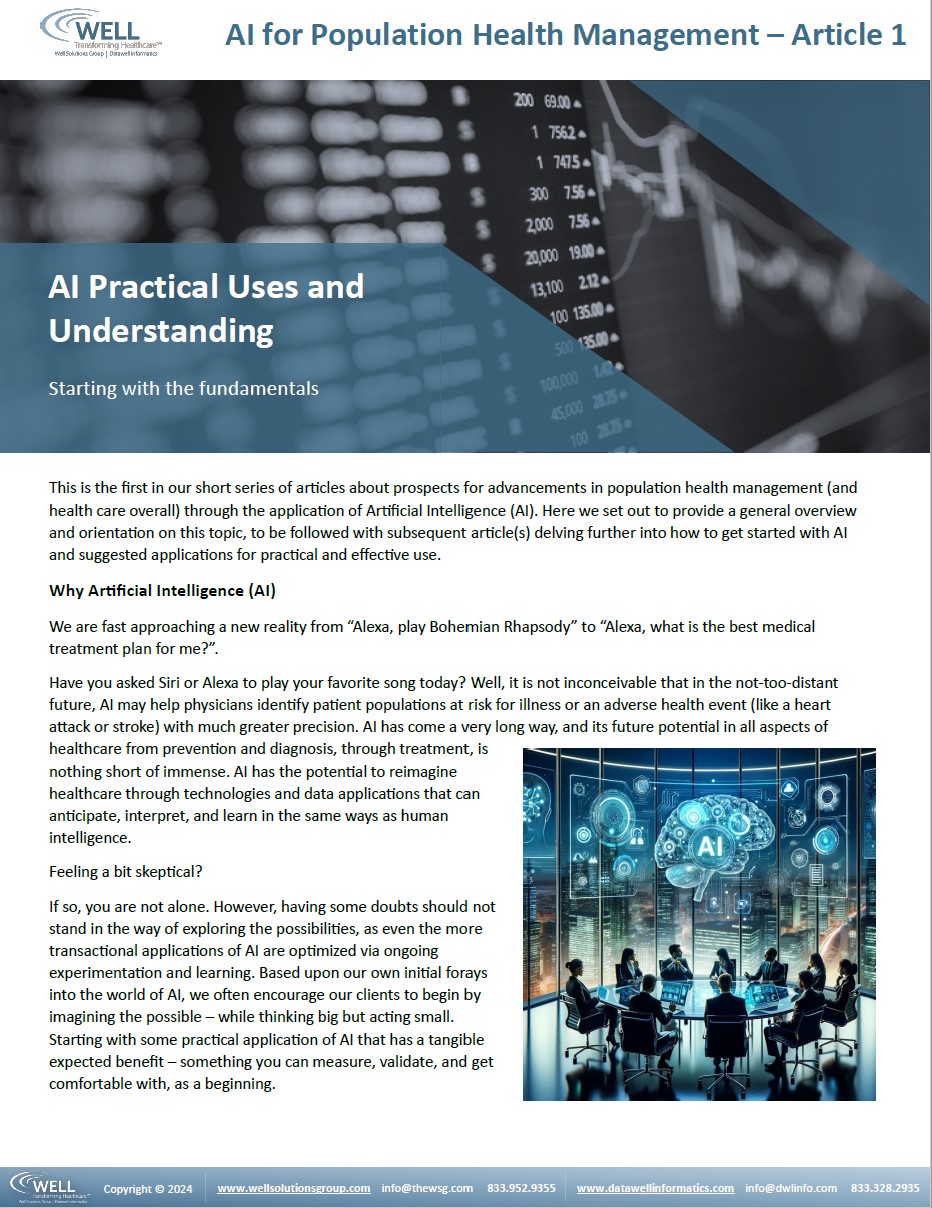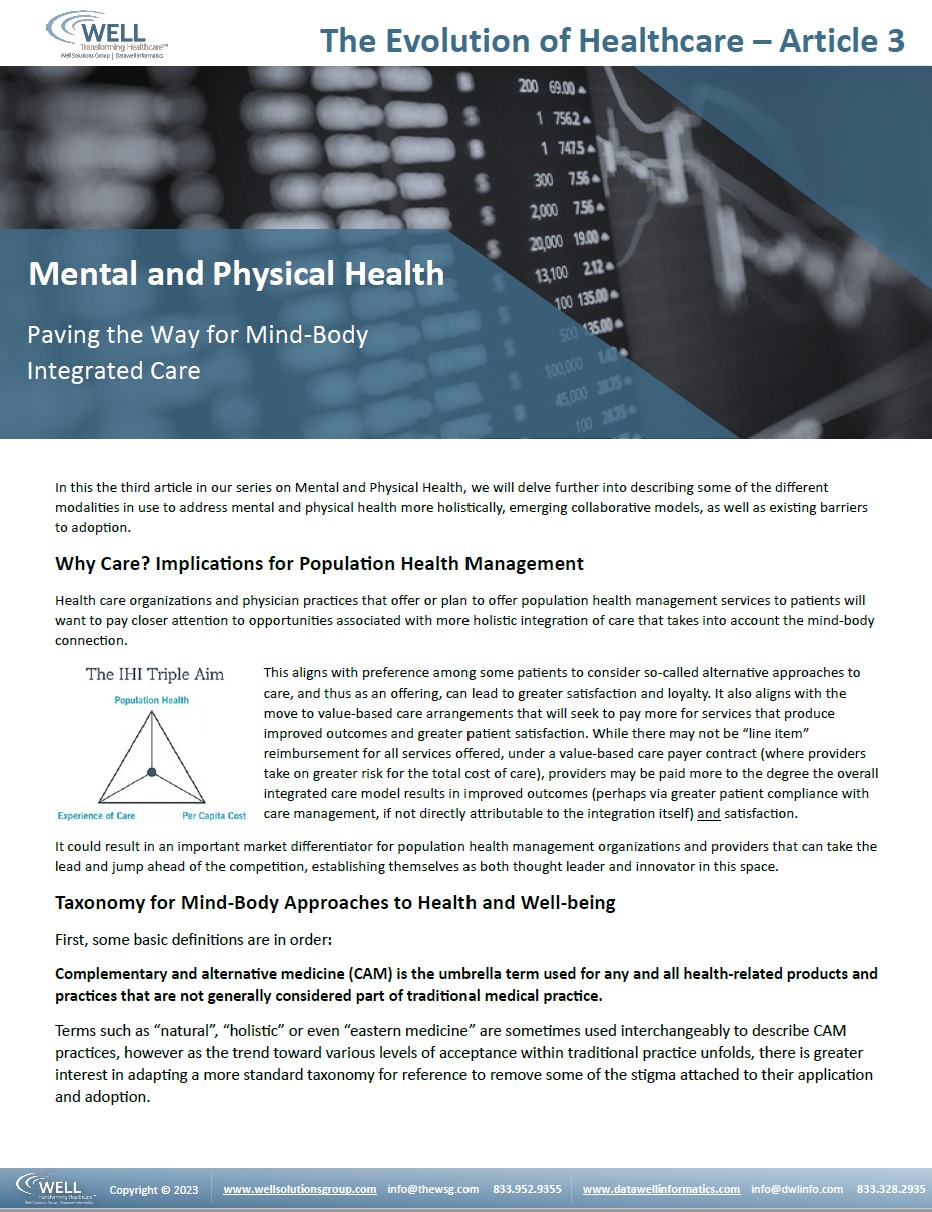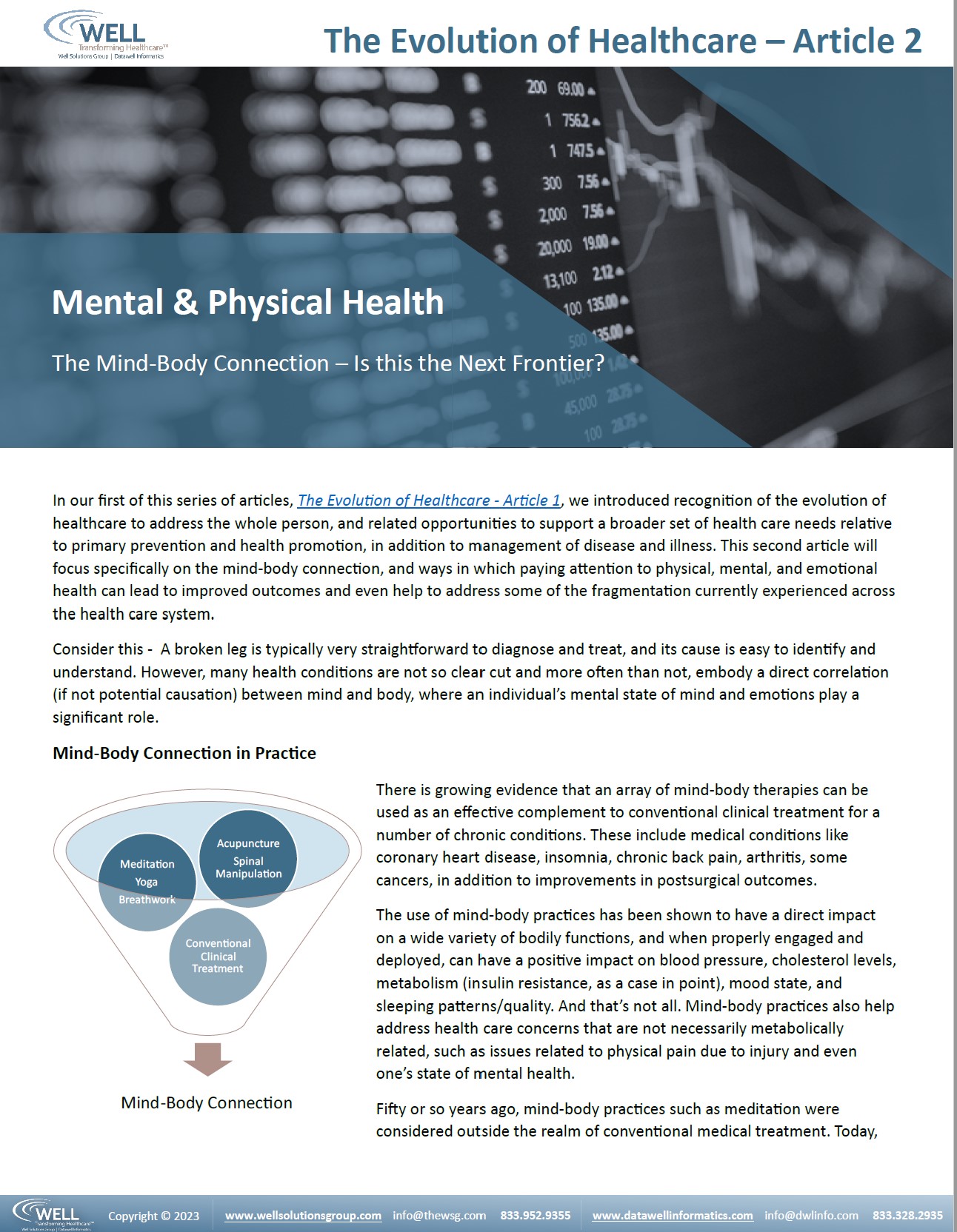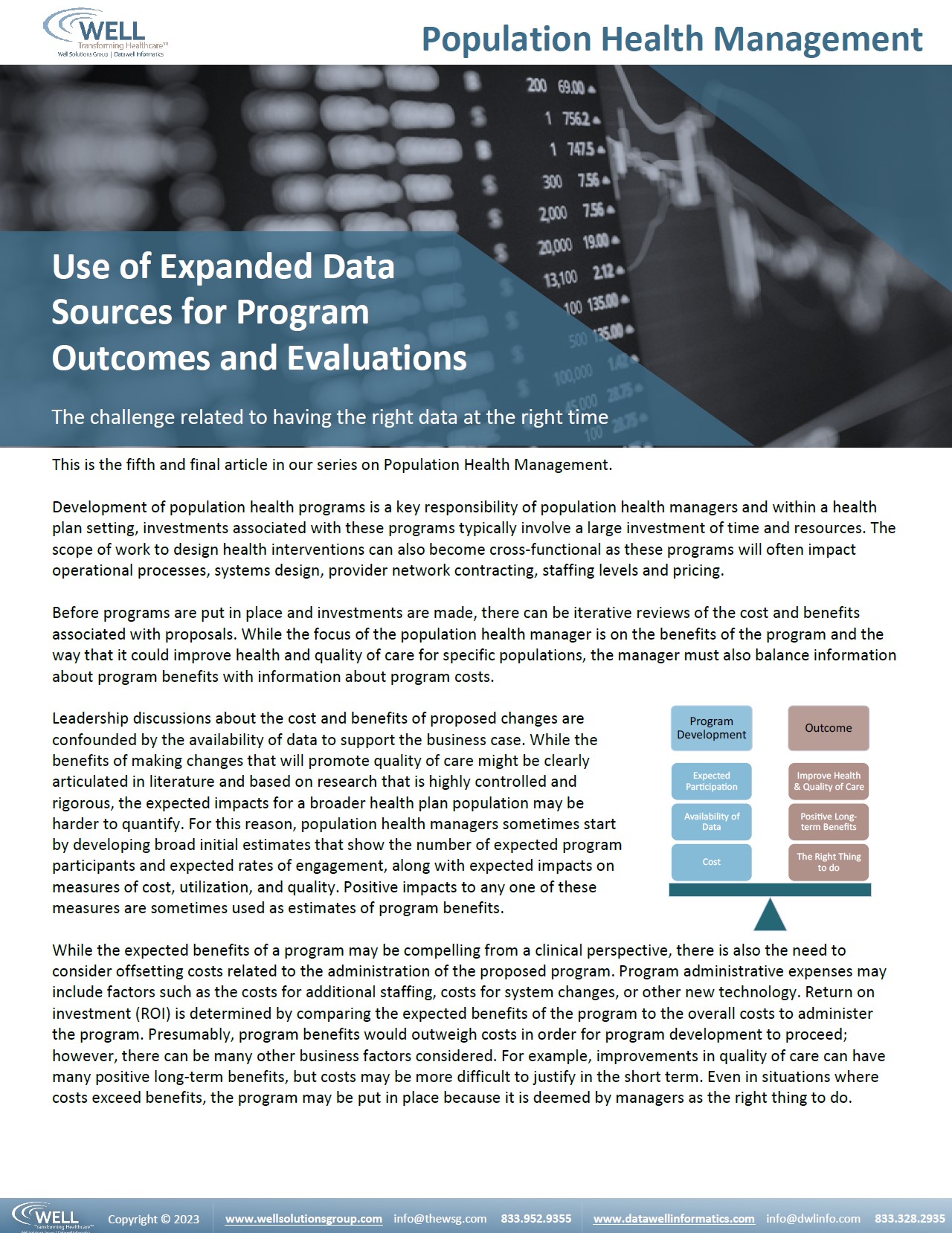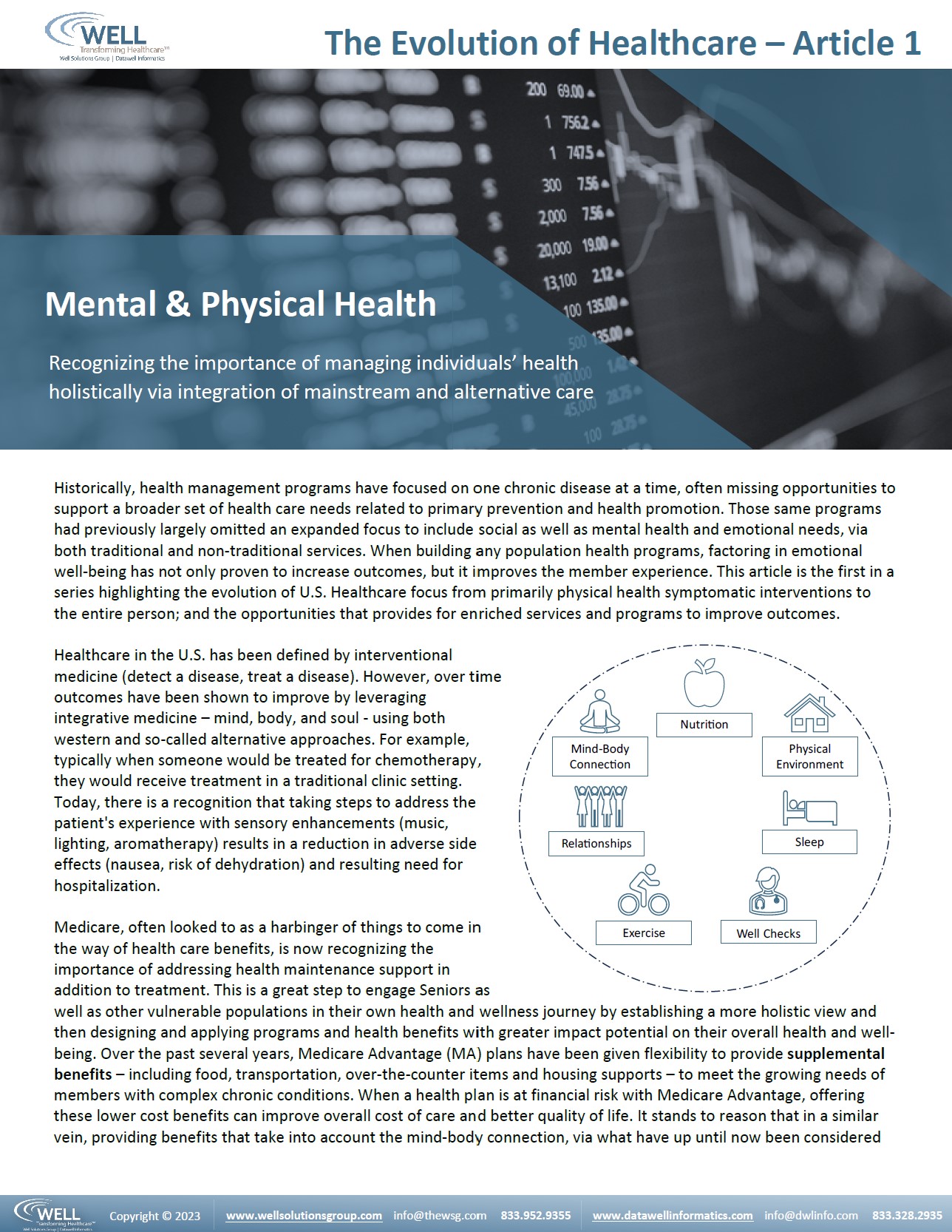In the News
Stories and trends changing the healthcare landscape
Payment Integrity 101 – Article 3 – June 2024
Payment Integrity Evolution
Over the past decade, the healthcare industry has seen payment integrity evolve from an under-resourced operational niche to a strategic asset that is central to the overall management of medical expense. A paradigm shift is underway, wherein many payers are recognizing that the status quo will not suffice in a volatile, disruptive market where, among other things, technology is advancing rapidly. Many are at the initial stages of fully understanding and implementing elements of a comprehensive future vision for payment integrity efforts, which in addition to dedicated analytic staff, comprise a team committed to ideation and innovation. Vital measures to track and drive performance of Payment Integrity (PI) initiatives, including the use of industry benchmarks and annual goal setting are gaining traction.
Payment Integrity 101 – Article 2 – June 2024
Guiding Principles: Payment Integrity as a Strategic Enterprise Solution
Today’s technology innovations and workforce challenges (need to drive toward greater efficiency) are prompting payers to take a closer look at payment integrity with an eye toward a more strategic framework. More and more payers are recognizing that the status quo will not suffice in a volatile, disruptive market where change is happening with increasing speed.
Over the past decade, the healthcare industry has seen payment integrity evolve from an under-resourced operational niche to a strategic asset that is central to the overall management of medical expense, in addition to efforts to improve quality of care and foster mutually satisfying provider relations. Let’s look at some guiding principles establishing Payment Integrity as a strategic asset.
Payment Integrity 101 – Article 1 – May 2024
Current State of Healthcare Payment Integrity: Article 1
Understanding what healthcare payment integrity entails and why there is renewed interest
Payment integrity encompasses efforts on the part of payers and healthcare providers alike to navigate ongoing challenges relative to achieving accurate and efficient payment. Having a system of payment integrity processes in place is essential for ensuring financial accuracy, maintaining compliance with regulators, optimizing the overall healthcare delivery system, and removing administrative waste which can have a negative impact on patient care and quality outcomes.
AI: Healthcare Data Privacy & Security – March 2024
Harnessing the Value of Artificial Intelligence (AI):
Protecting healthcare data privacy and security
AI at its core encompasses taking advantage of the rich and diverse sources of information that individuals and health care providers amass across the continuum of health-related behaviors, interactions, and management. Being able to better leverage these stores of data to enable predictions of health risk and more proactive engagement to promote better health care outcomes via AI tools and applications offers great promise. With this comes a responsibility to safeguard and ensure responsible stewardship of sensitive information. This includes both the use of the data itself as well as the output, predictions and actions that ensue.
Successful Process Improvement Management – February 2024
Process Improvement: It Takes Leadership
How process improvement is managed above and beyond what is done is a key ingredient for success and can make the difference between a well-executed improved process and one that fails to deliver demonstrative, sustainable results.
Our view of process improvement success is less about the process and tools mechanics and more on sharing insights on the leadership of the process – what are the management principles that come into play when the goal is to identify, plan and execute a successful process improvement initiative?
As a backdrop to help illustrate this perspective, we will leverage a recent successful process improvement engagement undertaken on behalf of one of our clients. Let’s start there.
AI for Population Health Management – Article 1 – January 2024
AI Practical Uses and Understanding – Starting with the fundamentals
This is the first in our short series of articles about prospects for advancements in population health management (and health care overall) through the application of Artificial Intelligence (AI). Here we set out to provide a general overview and orientation on this topic, to be followed with subsequent article(s) delving further into how to get started with AI and suggested applications for practical and effective use.
The Evolution of Healthcare – Article 3 – November 2023
Mental & Physical Health
Paving the Way for Mind-Body Integrated Care
In this the third article in our series on Mental and Physical Health, we will delve further into describing some of the different modalities in use to address mental and physical health more holistically, emerging collaborative models, as well as existing barriers to adoption.
Health care organizations and physician practices that offer or plan to offer population health management services to patients will want to pay closer attention to opportunities associated with more holistic integration of care that takes into account the mind-body connection.
The Evolution of Healthcare – Article 2 – October 2023
Mental & Physical Health
The Mind-Body Connection – Is this the Next Frontier?
In our first of this series of articles, The Evolution of Healthcare – Article 1, we introduced recognition of the evolution of healthcare to address the whole person, and related opportunities to support a broader set of health care needs relative to primary prevention and health promotion, in addition to management of disease and illness. This second article will focus specifically on the mind-body connection, and ways in which paying attention to physical, mental, and emotional health can lead to improved outcomes and even help to address some of the fragmentation currently experienced across the health care system.
Analytics for Population Health Management – Article 5 – September 2023
Use of Expanded Data Sources for Program Outcomes and Evaluations
The challenge related to having the right data at the right time.
Development of population health programs is a key responsibility of population health managers and within a health plan setting, investments associated with these programs typically involve a large investment of time and resources. The scope of work to design health interventions can also become cross-functional as these programs will often impact operational processes, systems design, provider network contracting, staffing levels and pricing.
The Evolution of Healthcare – Article 1 – September 2023
Mental & Physical Health
Recognizing the importance of managing individuals’ health holistically via integration of mainstream and alternative care
Historically, health management programs have focused on one chronic disease at a time, often missing opportunities to support a broader set of health care needs related to primary prevention and health promotion. Those same programs had previously largely omitted an expanded focus to include social as well as mental health and emotional needs, via both traditional and non-traditional services. When building any population health programs, factoring in emotional well-being has not only proven to increase outcomes, but it improves the member experience. This article is the first in a series highlighting the evolution of U.S. Healthcare focus from primarily physical health symptomatic interventions to the entire person; and the opportunities that provides for enriched services and programs to improve outcomes.

